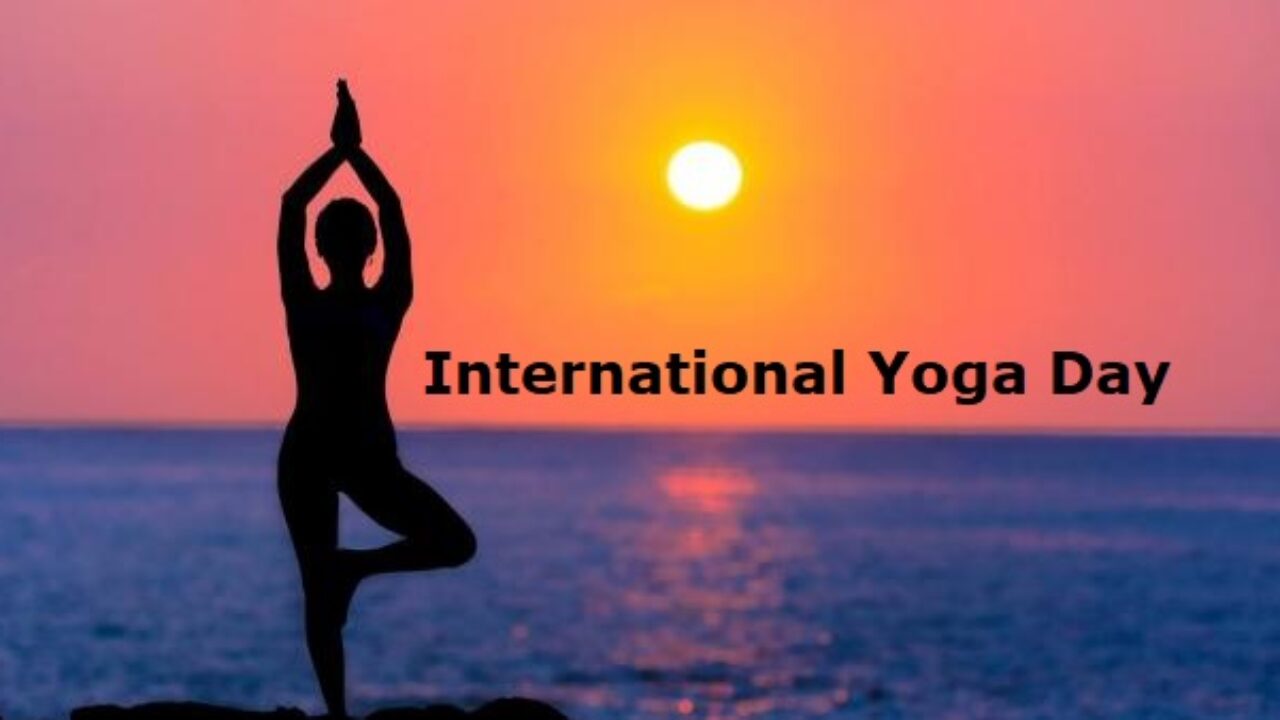International Yoga Day
Every year on June 21, the world celebrates International Yoga Day to raise awareness of the many advantages of yoga for fostering holistic health and well-being. This yearly commemoration serves as a reminder of the transforming power of yoga and its potential to have a good effect on people and communities worldwide.
Yoga is an ancient Indian practice that includes physical, mental, and spiritual disciplines. It is a comprehensive method that combines several aspects such as asanas (physical postures), pranayama (breathing exercises), meditation, and ethical precepts. The term “yoga” itself means “union” or “integration,” and it stands for the balance and kinship of the mind, body, and soul. It is a holistic practice that benefits the mind, body, and soul and provides a way to find oneself, find inner tranquility, and achieve general wellness.
Yoga has grown in popularity in psychology due to its many advantages in fostering mental health and wellbeing. The following are some crucial characteristics of yoga and its significance in psychology:
- Stress reduction: Yoga asanas and pranayama techniques aid in triggering the body’s relaxation response, which lowers tension and anxiety. Yoga has been demonstrated to promote the production of mood-enhancing neurotransmitters like serotonin and lower levels of stress chemicals like cortisol.
- Mindfulness and Self-Awareness: Yoga fosters mindfulness, which is the skill of being totally present and aware of the current moment without passing judgment. Individuals gain a greater sense of self-awareness through mindful movement and breath awareness, helping them to observe their thoughts, feelings, and sensations without becoming overwhelmed by them. A person’s psychological wellbeing can be understood and managed with the help of this greater self-awareness.
- Emotional Regulation: Yoga aids in the development of people’s capacity for emotional regulation and resilience. Yoga encourages tranquility and improves the capacity to control emotions by fusing breathwork and focused movement. It enables people to recognise their emotions and react to them in a more sensible and helpful way.
- Body-Mind Connection: Yoga places a strong emphasis on the relationship between the body and mind. People gain a greater understanding of their bodily sensations and how they affect their mental and emotional states through physical postures and breath control. This strengthened body-mind connection can result in better body acceptance, self-esteem, and psychological health in general.
- Improved Cognitive Functioning: Studies have indicated that yoga improves cognitive processes like concentration, memory, and attention. Yoga practices can stimulate brain areas linked to cognitive processing and enhance mental clarity and cognitive flexibility by combining movement, breath, and focused awareness.
- Self-Reflection and Introspection: Yoga offers a setting for introspection and self-reflection. People who practice meditation and mindful awareness might gain understanding of their cognitive processes, worldviews, and behavioral tendencies. This introspection promotes self-discovery, personal progress, and a better understanding of oneself.
- Resilience and Coping Skills: Resilience and coping abilities can be improved via regular yoga practice, allowing people to deal with adversities in life more skillfully. Yoga teaches people how to maintain their composure, accept the situation as it is, and find inner strength and balance even under trying conditions. It encourages positive thinking and adaptive coping techniques, which increases psychological resilience.
- Enhanced Well-being and Quality of Life: The yoga practice’s incorporation of physical activity, breath control, awareness, and introspection enhances general wellbeing and quality of life. Yoga provides a sense of inner calm, connection, and fulfillment, which helps with psychological health and a more optimistic attitude on life.
The United Nations General Assembly established International Yoga Day, also known as World Yoga Day, on December 11, 2014. Earlier that year, during his presentation to the UN General Assembly, Indian Prime Minister Narendra Modi proposed declaring June 21 as International Yoga Day. With 177 nations signing on as cosponsors, the initiative enjoyed resounding support from UN members. This showcased how yoga is acknowledged and accepted on a global scale as a comprehensive practise that cuts beyond cultural and religious barriers.
People from many backgrounds and cultures get together to celebrate and partake in yoga activities on International Yoga Day. The purpose of the day is to increase public awareness of the many advantages of incorporating yoga into daily life. Yoga has many physical and emotional benefits, from lowering stress and anxiety to enhancing flexibility, strength, and balance.
The promotion of peace and solidarity among people and communities is one of International Yoga Day’s main objectives. Yoga instills in us a sense of acceptance of difference, mutual regard, and connectivity. It crosses borders and brings together people from all walks of life to pursue well-being and inner development.
Each year’s International Yoga Day theme emphasizes a particular facet of yoga practice and its applicability to society. These ideas act as a compass, inspiring people to investigate particular facets of yoga and how they might be used to address current issues.
The celebration of International Yoga Day is open to everyone. It invites people of all ages and socioeconomic statuses to encounter the transforming power of yoga. People are introduced to the various facets of yoga through workshops, demonstrations, and open events, allowing them to investigate and apply its ideas to their daily lives.
Yoga is a flexible approach towards healing that can be tailored to meet the requirements and skills of each individual. Yoga offers a variety of methods and approaches that enable each person to find a manner that suits them, whether they practice alone or with others. People learn to pay attention to their bodies, practice mindfulness, and gain a better understanding of themselves on this path of self-discovery.
Yoga not only enhances physical health but also mental and emotional health. People can learn to quiet their brains, lower their stress levels, and increase their self-awareness through mindfulness and meditation. It offers a useful toolkit for coping with the difficulties of contemporary living and fostering emotional resilience.
In our busy and demanding society, it is important to prioritize mental health and self-care. International Yoga Day serves as a reminder of this. It motivates people to schedule time for introspection, rest, and self-care activities, thereby promoting a healthier and more well-rounded way of life.
The International Yoga Day celebration highlights the value of international cooperation and understanding as the globe grows more interconnected. It acknowledges that yoga’s advantages go beyond personal well-being and help create a more tranquil and harmonious environment.
Let’s explore yoga’s transforming potential and apply its tenets to our daily lives on this unique day to honor International Yoga Day. Whether you are a novice or a seasoned practitioner, pause for a moment to consider the harmony that yoga promotes and how it might help to build a more forgiving and interconnected world.
International Yoga Day serves as a reminder that everyone’s journey to wellness starts inside of them. We improve our own lives and the world around us by taking care of our own physical, mental, and spiritual well-being. Spreading yoga’s message of peace, harmony, and wellbeing across boundaries and cultures, let’s celebrate the profound knowledge and healing power of this practice.




